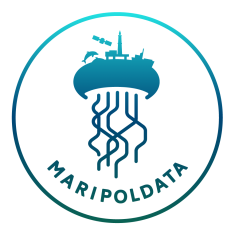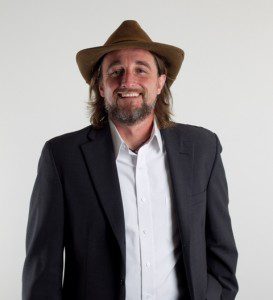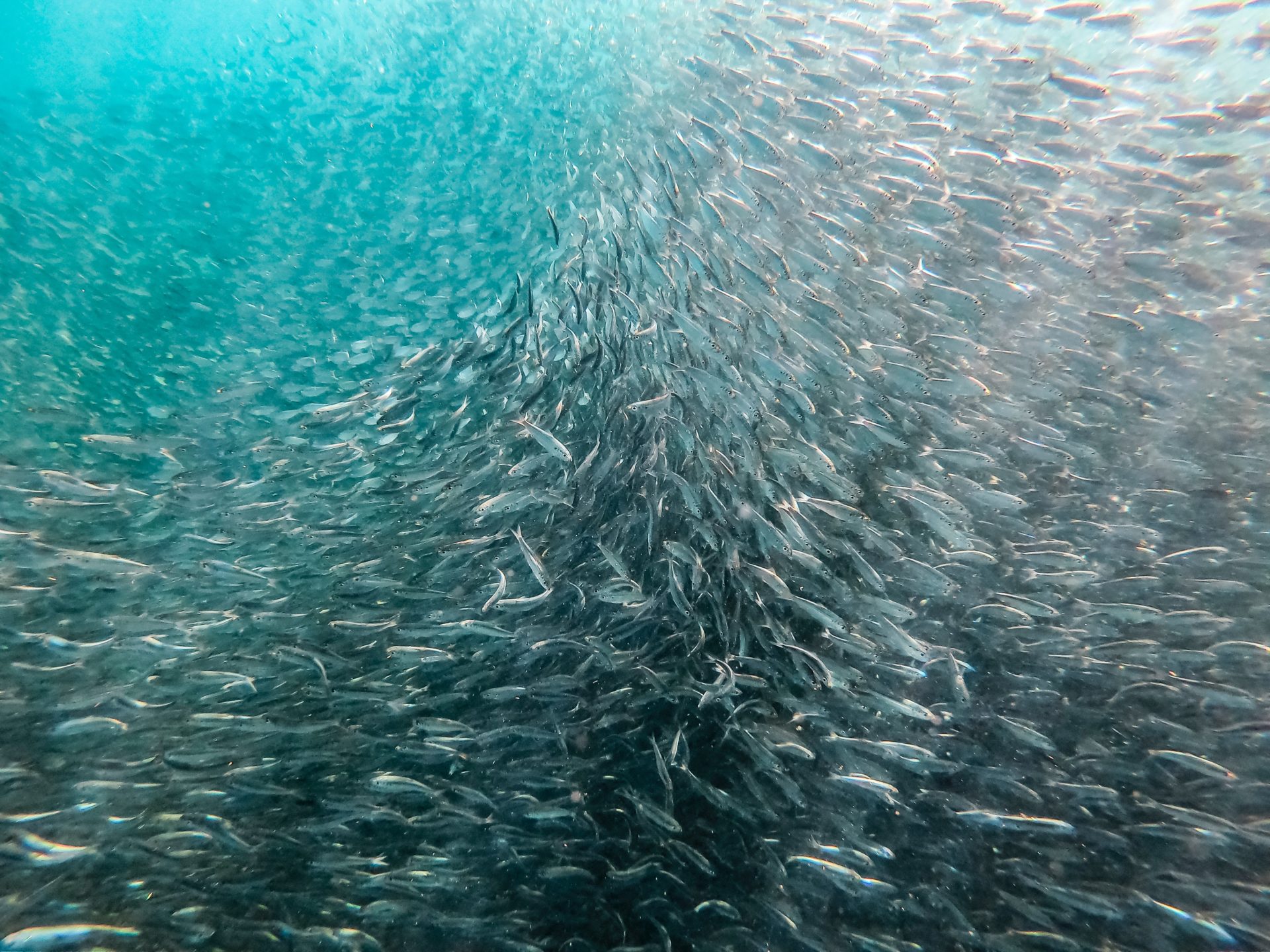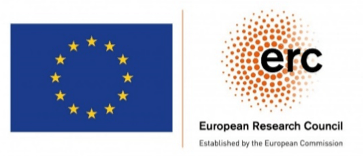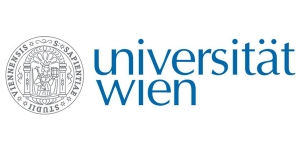MARIPOLDATA and Peter Jacques: Sustainability and Growth in the Oceans
On the 11th of March, the MARIPOLDATA team welcomed one of its international advisory network members: Doctor Peter Jacques from the University of Central Florida in Orlando (USA). He has a PhD in Political Science with a focus on the connection between environmental policy and foreign policy; and he is an expert in sustainability with specific experience in climate change policy, fisheries, and international marine policy. Some of his current research projects include the study of denial of climate change and its connections to western ideals of progress, the international regulation of ocean pollution and fisheries.
MARIPOLDATA organized a workshop with Peter Jacques to exchange views on ongoing and future research. The MARIPOLDATA team presented preliminary findings of our work, the methodological approach, which we develop to study the practice of agreement-making in tandem with the social study of scientific fields, and ideas on future research paths. Peter raised critical questions, such as “Do international relation theories properly thematize environmental issues and the current BBNJ case?” He was also engaged with what the BBNJ regime is and how to define it.
Evening talk in exceptional times
Peter was invited to give an open talk about the World Ocean Regime. The public event had to be canceled and replaced by an internal event with him and two discussants: Dr. Thomas Loidl, from MARIPOLDATA’s advisory network, and Dr. Monica Berg, our guest researcher. Peter presented the findings of the research article that he wrote with Rafaella Lobo: “The Shifting Context of Sustainability: Growth and the World Ocean Regime”, which explores the use of sustainability concepts in the supervision of fisheries. Peter discussed innovative theoretical and methodological approaches, as well as research findings. He started by emphasizing that the World Ocean Regime is an implicit, unwritten set of rules that governs the activities in the oceans beyond all international agreements. In other words, the World Ocean Regime is the ways in which countries and international organizations carry out activities in the oceans; and these ways are not explicitly written in any international document. To study this regime, he focused on the analysis of the reports over the State of the World Fisheries and Acquaculture (SOFIA reports). These have been published every two years by the Food and Agriculture Organization (FAO) since 1995 and inform about the state of fisheries and associated laws. They are fundamental for the research because they assess all aspects that are related to and affect fish, such as, among others, temperature, food web, pollution, acidification: the SOFIA reports account for the conditions of the ocean.
The ocean faces different threats: acidification, biodiversity loss, increased temperatures, among others. As years pass by and these conditions worsen, Peter asked himself ‘Why is the World Ocean on fire?’.
Secondary questions came to mind when trying to find an answer: What has allowed this to happen? Why have Regional Fisheries Management Organizations (RFMOs) not kept fisheries sustainable? Are values, beliefs and norms responsible for this? What determines them? He concluded that discourses shape these questions: Discourses institutionalize thinking and expectations and are representations of reality. ‘But what determines how values, beliefs and norms are selected?’, Peter asked. Institutions might have a role in this.
Fisheries and Sustainability
Peter and Rafaella used Quantitative Content Analysis (QCA) of the SOFIA reports back to 1995. This research method requires the proper identification of pre-processed text, this means, for instance, to exclude job titles, and indexes from the sample. Additionally, QCA requires the creation of a stemmed dictionary that encompasses all relevant words. They modified an existing dictionary and added social issues, science concerns, food issues, governance, overfishing, and a sample of specific fish stocks.
The following step was the creation of categories that represent the ideas to explore. These were life support, governance, economic-utilitarian values, specific fisheries, overfishing, social values, science, govern food, aesthetic, moral-spiritual. They later used hierarchical cluster analysis to test the coherence between the categories. They also used multidimensional scaling to make sure that categories are different from each other. The results showed that economic values dominate the discussion and that governance is the second most important category of all – the FAO focuses more on the growth of fisheries rather than on setting limits to how much fisheries can catch.
After this first phase, they decided to concentrate exclusively on a new category – Sustainability, which focuses on that economic activities do not exhaust natural resources so that future generations have access to these resources as well. Peter and Rafaella then aimed to answer the questions: How is the concept of sustainability used and how does it change over time? How are some norms chosen over others? To do this, they divided sustainability into three main profiles and added them to the dictionary they previously used. These profiles were principles of sustainability, sustainable development and maximum sustainable yield. The results showed that the principle of sustainability constitutes the majority of the discussions. Nevertheless, a deeper analysis of the results demonstrated that the reports portray sustainability primarily as an economic issue.
Findings and discussion
Jacques and Lobo concluded that ‘sustainability’, ‘sustainable development’ and related concepts have been used to secure economic norms that are in fact not sustainable. Their research argues that, while the FAO is not opposing ocean protection, economic growth is its main priority and ‘sustainability’ legitimizes its economic concerns.
Dr. Monika Berg, senior lecturer in sociology at the University of Örebro, Sweden, and specialist on the science-policy interface and environmental policy took part in the event as a discussant. She asked questions related to the theoretical framework of the research. For example, she asked Peter why he selected the discourses of the FAO, how these reports relate to other sustainability discourses, if sustainability has become more relevant in the discourses because it has been subsumed in the economic discourse, how these norms are actually invisible, and how states and individuals are related to these discourses.
Peter concluded that the SOFIA reports and other sustainability discourses are interrelated because they are characterized by the use of a sustainable development concept that does not restrain how much fisheries can catch. He emphasized that sustainable development has always focused on economic growth and stressed that sustainability has effectively been subsumed in the economic discourse. Moreover, the economic demands of countries have not allowed conservation-oriented RFMOs to fulfill their tasks. This is closely related to the organization of the global economy and to the primary interest of the USA in shaping the discourses and regimes that govern fisheries. Finally, he clarified that these norms are invisible in the sense that they are hidden in the linguistic structure of the reports.
Dr. Thomas Loidl pointed out that there is not a reigning anarchy in the high seas. The lack of an overarching authority characterizes the socioeconomic reality of the areas beyond national jurisdiction (ABNJ). Additionally, there is a lack of compliance with international instruments that regulate activities in these areas, such as the different RFMOs.
Peter Jacques made it possible for the MARIPOLDATA team to get a closer look on the underlying growth discourse of the SOFIA reports. This is certainly a meaningful contribution to the understanding of the economic development of fisheries, a significant area for the mentioned BBNJ negotiations, and therefore, for the research of MARIPOLDATA.
If you want to listen to the recorded talk, feel free to email us (maripoldata.erc@univie.ac.at) indicating your interest and we will send you the link.
Sources
Jacques, P. J., & Lobo, R. (2018). The Shifting Context of Sustainability: Growth and the World Ocean Regime. Global Environmental Politics, 18(4), 85–106.
